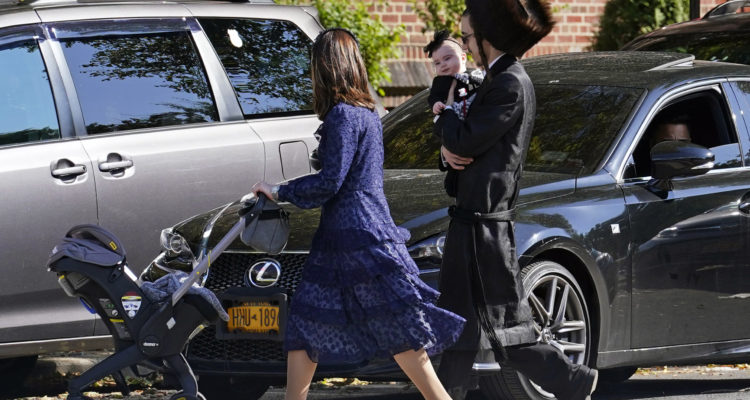As infections spike in possible second COVID-19 wave, Mayor Bill de Blasio orders some schools, non-essential businesses closed.
By Paul Shindman, World Israel News
The mayor of New York City announced coronavirus closures in nine neighborhoods of the city with high infection rates, many of them where the population is predominantly Jewish, the New York Times reported Sunday.
City officials have warned for several weeks that infection rates are rising in several neighborhoods, especially in places where ultra-Orthodox Jews comprise a large percentage of the population.
While most of the ultra-Orthodox have been following health guidelines, groups within the communities have held large indoor gatherings leading to high positive rates for coronavirus testing .
“Today, unfortunately, is not a day for celebration,” De Blasio said, announcing the plan that will affect 20 neighborhoods in Brooklyn and Queens.
The mayor said the steps “give me no joy at all” as the high infections rates in those areas have not been seen in the city since the spring.
“We have to address this issue forthrightly,” the mayor said, saying that “by using the tools that we know work” they hoped to stop the spread of the coronavirus.
Although the plan still has to be approved by New York State Governor Andrew Cuomo, beginning Wednesday the city will close non-essential businesses, all schools and ban both indoor and outdoor dining in restaurants in those areas.
The major coronavirus outbreak in the city earlier this year left more than 20,000 of the city’s residents dead.
Although the city’s overall infection rate is 1.5% of those tested, nine of the areas targeted have had rates as high as 8%, sparking a new wave of infections.
“I think it’s unfortunate that New York City continues to single out a couple of Hasidic Jewish neighborhoods when there are now 20 neighborhoods with serious spikes,” David Greenfield, a former city councilor who represented the mainly Jewish Borough Park district, told the Times.
Of the 300 schools in the neighborhoods that will be closed, 200 are private – mostly Jewish yeshivas – and the other 100 are public schools.
Two weeks ago city health officials raised the issue of “heightened rates of COVID-19 in many neighborhoods with large Orthodox Jewish populations,” but some communities continued to have large gatherings, especially over Rosh Hashana and Yom Kippur.
“There does not have to be a second wave,” de Blasio said. “The fact is that these communities are experiencing a problem.”
The areas affected by the new restrictions include Borough Park, Midwood, Gravesend, Bensonhurst and Sheepshead Bay in Brooklyn and the Far Rockaway and Kew Gardens areas of Queens. The toughened rules will stay in effect for two to four weeks or longer, depending on whether or not the infection rate drops.
Houses of worship including synagogues remain open due to a federal court order, but can only be filled to 50% of their capacity.
Jewish leaders criticized authorities for not getting the word out to the Jewish communities where, culturally, most followers do not pay attention to the news, do not own smartphones and do not have televisions,.
“This is a community where a lot of people believe they have already had the virus, a lot of people believe they have herd immunity, so they really believe they don’t need to get tested,” state legislator Simcha Eichenstein told the Times recently. “That is why it is so important to communicate with people on the ground.”




